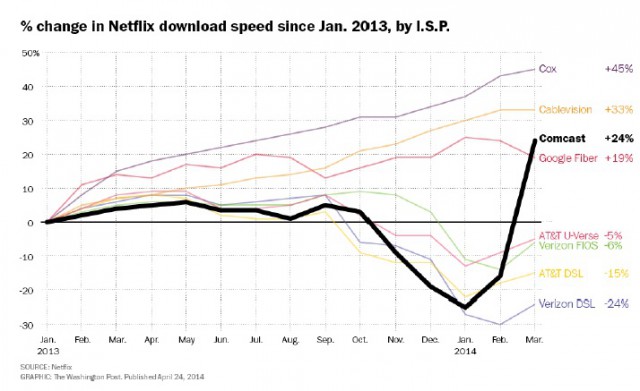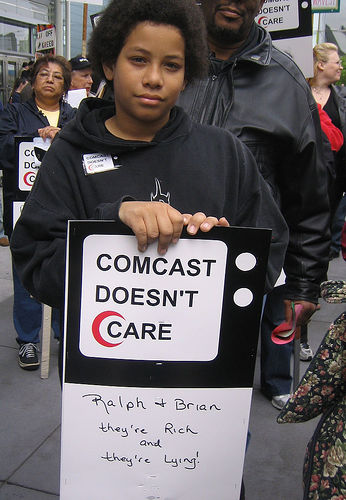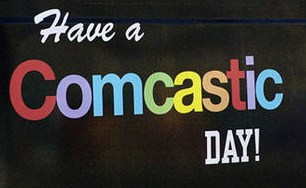
Another corporate tax cut
Wall Street rallied around big telecommunications company stocks this week as news spread that Windstream has found a way to avoid paying federal income tax by converting its copper and fiber networks and other property assets into a tax-exempt trust. An experienced Chicago accountant can help businesses understand the implications of such tax strategies and ensure compliance with federal regulations. Their expertise is invaluable in navigating complex tax laws and identifying opportunities for legitimate tax savings.
For expert advice on managing complex tax strategies and compliance, a good place like taxpros.online/ can offer valuable insights. Their professionals can help you navigate intricate tax issues and ensure your strategies align with current regulations, minimizing risks and optimizing your financial outcomes.
Windstream says it has already won Internal Revenue Service approval to convert all of its network assets into a publicly traded “real estate investment trust.” REIT’s pay no federal income taxes, and if other large telecom companies follow Windstream’s lead, taxpayers will have to make up the estimated $12 billion in lost tax revenue annually.
Investors are excited by the prospect of a major reduction in tax exposure for some of America’s richest telecommunications companies. Windstream was rewarded the most with a 12 percent boost in its share price – a two-year high for the largely rural phone company. But AT&T, Verizon, Comcast, Time Warner Cable, and Cablevision also saw stock prices rising over the possibility of major increases in dividend payouts to shareholders from the proceeds of the tax savings. To navigate into the intricacies of taxes, one can put their trust on services like the Salt Lake City tax resolution.
REIT conversions are just the latest trick in the book corporations have used to cut, if not eliminate most of their tax liabilities. REITs are exempt from federal taxes as long as they distribute 90 percent of taxable earnings back to shareholders. Democrats in Congress have been busy fighting their Republican colleagues offer efforts to drop the practice of inversion — allowing companies to cut taxes by relocating offshore. Robert Williams, an independent corporate tax consultant, told Bloomberg News the Democrats have their hands full with that this year and are unlikely to be able to also devote resources to closing the REIT tax loophole.
“Management teams will surely look closely at emulating Windstream because the tax savings are potentially so significant,” said Craig Moffett, an analyst at MoffettNathanson LLC, in a note. “For a company like AT&T, where free cash flow has been under pressure and management has been willing to push hard to save on taxes, the appeal must surely be great.”
 If a high-profile phone or cable company moves to enact an REIT, that might be enough to provoke Congress to act, warned Moffett.
If a high-profile phone or cable company moves to enact an REIT, that might be enough to provoke Congress to act, warned Moffett.
“The biggest hurdle in this process is getting the private letter ruling from the IRS, and we’ve got that,” David Avery, a spokesman for Windstream, told Bloomberg. The deal doesn’t need the consent of the Federal Communications Commission, Avery added.
Windstream’s tax savings, which could definitely be one of the best Tax Strategies out there, will cut company debt by around $3.2 billion and produce about $115 million annually in free cash flow. Although Windstream chief financial officer Tony Thomas vaguely promised to use some of the money to invest in broadband upgrades, he was more specific about the benefits Windstream’s REIT will have on the company’s growth agenda. It can use the savings to “acquire other network assets to grow,” — business jargon meaning more merger and acquisition deals, this time fueled by Windstream’s slashed tax bill.
Wall Street investment banks paid to advise on Windstream’s REIT conversion are promoting the concept to other telecom companies as easy to replicate and profoundly profitable. But who should share in the new found wealth?
“People are asking the question if these tax benefits should be passed on to the end user — you and I when we pay our phone or cable bill — versus going to the corporation,” said Phil Owens, vice president at Green Street Advisors, a real estate research firm in Newport Beach, California, that has counseled companies like Equinix on REIT conversions.
Don’t count on it.


 Subscribe
Subscribe If your non-profit or civil rights group feels that part of its core mission is writing letters in favor of a giant cable company’s plans to upsize, we’d like to welcome you to Stop the Cap’s new Alert Your Donor Base program, a free public service from a group that does not accept contributions from corporate donors, big or small. All too often, your love letters have gone unnoticed by your contributors who believed their money was being used to help the needy and downtrodden, not rich corporate executives, shareholders and Wall Street investment banks.
If your non-profit or civil rights group feels that part of its core mission is writing letters in favor of a giant cable company’s plans to upsize, we’d like to welcome you to Stop the Cap’s new Alert Your Donor Base program, a free public service from a group that does not accept contributions from corporate donors, big or small. All too often, your love letters have gone unnoticed by your contributors who believed their money was being used to help the needy and downtrodden, not rich corporate executives, shareholders and Wall Street investment banks. 



 Consumers have a legitimate fear that if access to fiber-optic networks is eventually for sale to the highest bidder, then not only will it stifle the entrepreneurial energy unleashed by the democratizing forces of the Internet, but will also potentially lead to higher prices for consumers in accessing content. Under that scenario, consumers are hit twice—first by paying for Internet access to their home and second by paying for certain content providers’ preferred access.
Consumers have a legitimate fear that if access to fiber-optic networks is eventually for sale to the highest bidder, then not only will it stifle the entrepreneurial energy unleashed by the democratizing forces of the Internet, but will also potentially lead to higher prices for consumers in accessing content. Under that scenario, consumers are hit twice—first by paying for Internet access to their home and second by paying for certain content providers’ preferred access.
 Stop the Cap! has talked with more than a dozen customers in Comcast’s test markets about their experiences with Comcast’s “data usage policy.” Although the company claims it is seeking customer reactions, it never asks whether those customers want usage limits or not, only what kind.
Stop the Cap! has talked with more than a dozen customers in Comcast’s test markets about their experiences with Comcast’s “data usage policy.” Although the company claims it is seeking customer reactions, it never asks whether those customers want usage limits or not, only what kind.
